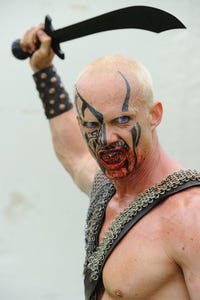X
Join or Sign In
Sign in to customize your TV listings
By joining TV Guide, you agree to our Terms of Use and acknowledge the data practices in our Privacy Policy.
Popular Shows See all shows
Edward & Mrs. Simpson
While still the Prince of Wales, the future Edward VIII meets the married American socialite, Wallis Simpson. Their relationship causes furor in the palace and in parliament, especially when King George V dies, Mrs. Simpson gets divorced, and King Edward announces his intention to marry her.
The New Dragnet
Two straight laced L.A.P.D. Detectives, Vic Daniels and Carl Molina, fight crime. Remake of the classic 60s show of the same name. A reboot of the classic series, which appeared in syndication from 1989 to 1991, starring Jeff Osterhage and Bernard White as detectives Vic Daniels and Carl Molina, and Don Stroud as Captain Lussen. Two seasons, of 26 episodes each, were aired.
Lonesome Dove: The Outlaw Years
A sequel to 'Lonesome Dove: The Series.' Newt returns to Curtis Wells after a two-year absence, only to find that Clay Mosby has corrupted the town.
The Immigrants
A miniseries adapted from Howard Fast's bestseller about shipping magnate Daniel Lavetta, the son of Italian immigrants who settle in San Francisco at the turn of the 20th century.

Critter Gitters
A series about a group of kids who form a club that rescues animals.
Hold the Dream
The follow-up to A Woman of Substance with Emma Harte at age eighty in the last winter of her life and dealing with her granddaughter Paula, as well as her respected advisor Henry Rossiter and Blackie O'Neill.
